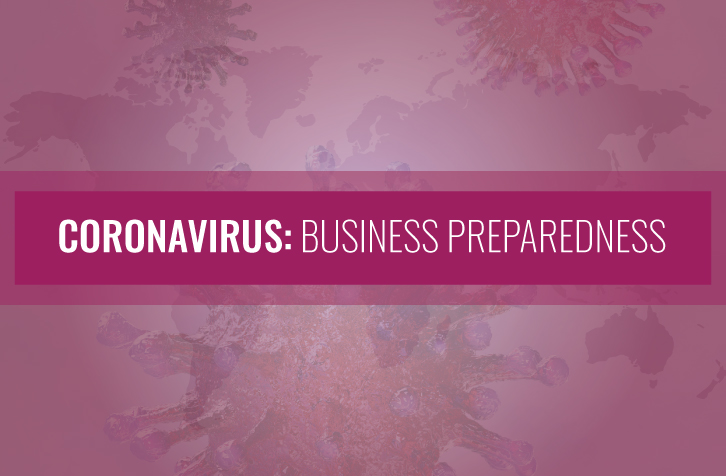As the experts on Hotel & Resort Carpet Cleaning, we share hotel industry news valuable to our clients. Here is an article concerning the Coronoavirus (Covid-19) and how to plan.
Reprinted from Hotel News Now
In the midst of the coronavirus (COVID-19) outbreak, hoteliers need to maintain clear communications with all stakeholders and scrutinize any management decision and emergency plan, according to four experts at business consultancy Deloitte.
Speaking to more than 3,000 attendees on Deloitte’s first webinar on the virus, chief economist Ian Stewart said the policy response from most governments has been very strong, but two quarters of decline—i.e. a recession—is very likely.
Stewart said that while external shocks to the stock markets are disruptive—including terrorist attacks, natural catastrophes and diseases such as coronavirus—they produce short-term declines and don’t tend to change the long-term direction of economic growth.
“We are seeing a forceful and coordinated response, one based more on fiscal policy, less on monetary, policy, as this is not a financial crisis,” he said. “Keeping economies going during the financial crisis was controversial. Doing it (during coronavirus) is not.”
He added that governments would continue to need to maintain liquidity flowing through the banking sector, support employee incomes and shore up confidence in a period where households are likely to spend less and businesses invest less.
Stewart underlined what he saw as positive intervention from the U.K. government, which has pledged an emergency £30 billion ($37.8 billion) stimulus, and the Italian government, which has pledged a stimulus of €28 billion ($31.3 billion).
Such responses are required, Stewart said, in light of indications that indices such as the China National Bureau of Statistics Manufacturing Purchasing Index have fallen to 2009 levels.
Ten days ago, the U.S. Organization for Economic Co-operation and Development re-forecasted its global gross-domestic-product forecast for full-year 2020 down from 2.9% growth to 2.4% growth. Stewart said that if the intensity of the coronavirus in China continues elsewhere, that could be revised down to 1.5%.
“Businesses are adopting defensive strategies to reduce costs, reduce leverage and increase cash flow,” he added.
Coronavirus could also affect the global manufacturing industry, Stewart said.
“There is much more scrutiny on globalized supply chains, and the acceleration of change around this. This is clearly bad news for globalization,” he said.
Andrew Grimstone, financial advisory partner at Deloitte, said companies should reassess their procurement strategies.
“Business will begin assessing end-to-end supply chains,” he said. “How many operating locations are still active? When might they resume service, and what is the capacity impact and timing of a recovery?
“You cannot make a car with only 99% of the parts,” he added.
Business strategy
Tim Johnson, Deloitte’s risk advisory partner, crisis management, said the following five strategies need to be put in place by hotel firms and other businesses:
- provide accurate, authoritative information;
- temper assumptions about employees’ willingness to work;
- adopt an inclusive approach to planning;
- make sure essential staff understand the importance of their role; and,
- consider logistical support for essential staff, particularly if they need to come into the workplace.
Johnson said explaining to critical staff their individual roles’ importance will lead to them completing that role in the best possible manner.
“Also ask, what are your staff thinking? What are their concerns, and what do they want from you?” Johnson said.
Grimstone said setting achievable, short-term goals is key.
“Be relentless in implementing near-term actions,” he said. “Engage proactively with key stakeholders, and keep focused on the medium-term horizon.”
Sometimes the structure of large corporations can prohibit effective decision-making, Johnson said.
“Many organizations are highly complicated, so that makes decision-making all the more problematic,” he said. “Businesses need to be aware of the parameters of their own decision-making, and cross-functional decision-making is imperative to make sure the (COVID-19) crisis does not find a business’s cracks.”
Johnson said another pitfall is around what he called “blind spots in senior management.”
“Crisis plans do exist in most companies, but sometimes there is a reluctance in a situation that has developed over several weeks to decide on the right moment to mobilize,” Johnson said. “It is human nature, the innate sense that (COVID-19 or another emergency) is someone else’s problem. Sometimes management fails to ask the ‘what if?’ questions.”
Labor and cash flow
Deloitte research shared during the webinar suggested that 55% of those able to work are willing to do so during a pandemic. That makes absence planning essential, sources said.
“What are your critical services?” Johnson said. “Some estimates suggest a nine-week epidemic period, but the new ‘delay’ measures being out in place to reduce the peak infection rate may prolong the epidemic to 15-20 weeks.”
Grimstone said that the other critical component of businesses’ short- and medium-term health is cash flow.
“Cash-flow pressure can put smaller businesses into trouble, and this in the hotel, retail and leisure industries is adding to pressures they faced anyway before COVID-19,” he added.
Grimstone had his own six strategic points for navigating the next few months:
- demonstrate you have your stakeholders’ best interests at heart;
- ensure you have one version of the truth;
- empower your teams;
- learn from COVID-19;
- consider new business models; and
- leverage the crisis to emerge stronger.
“In regards to empowering your teams, understand that mistakes will be made as this is so fast-moving,” he said.
In regards to financing concerns, Grimstone had a few additional pointers:
- evaluate business interruption cover and claims;
- review existing facility/inter-creditor documentation;
- identify potential collateral for additional borrowing; and,
- stay abreast of government support, help and regulatory changes.
“The lending world has changed radically over the last few years, much held by so-called alternatives, and many stand ready to help those impacted by COVID-19,” he said.

